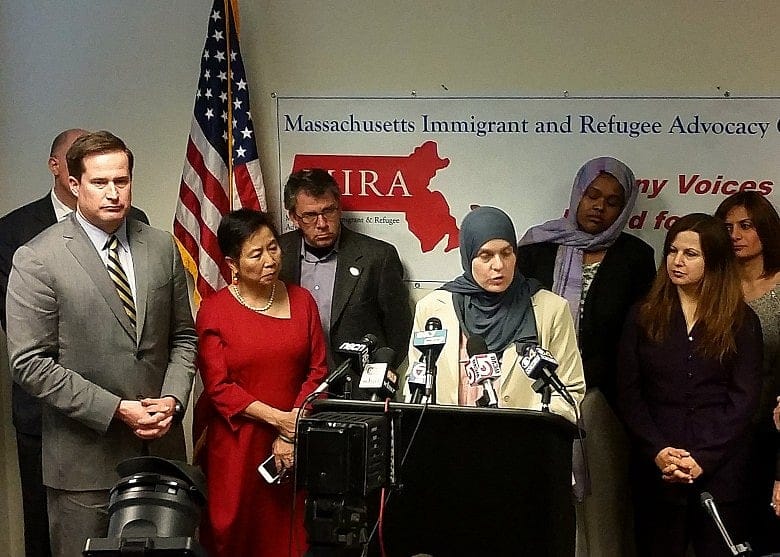Strict Syrian refugee screening ensures safety, Moulton says

BOSTON – U.S. Rep. Seth Moulton and Gov. Charlie Baker have patched up a rift over dealing with Syrian refugees which erupted last week after the Nov. 13 terrorist attacks in Paris.
"We had a very good phone call at the end of last week," Moulton, a Democrat from Marblehead, told reporters Tuesday at the Massachusetts Immigrant and Refugee Advocacy Coalition in Boston, after he sat in on a roundtable discussion with refugees, advocates and Baker aides. "I think the fact the governor was willing to send representatives here today to listen is exactly what we need to do."

